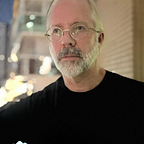Toward WOMENS Knowledge and the Cultivation of Wisdom Energy in the 21st Century
The Unified Theory of Knowledge consists of eight key ideas that together offer a metamodern vision of a scientific worldview that allows us to solve the problem of psychology and develop a new, more unified approach to psychotherapy in a way that orients toward the systematic cultivation of wisdom energy (WE) in the 21st Century.
As it emerged in the 18th and 19th centuries, Modern Empirical Natural Science — let’s call it “MENS” knowledge — carried with it the Enlightenment Gap, which refers to the fact that it failed to provide a grammar that afforded us the right relations between matter and mind and science and society. A central and logical consequence of this gap was the problem of psychology. That is, traditional MENS knowledge did not offer a coherent approach to “psyche logos” (i.e., the scientific formulation of the form and function of the human psyche).
The consequences of this failure have been that our unique perspectival subjectivity (pathos) and our collective value laden stories of who we are and where we come from (mythos) were split off from the core of logos (i.e., physics) in MENS thought. We are now seeing the downstream effects of this fragmented knowledge in the form of the meaning and mental health meta-crises. When combined with environmental crises and the chaotic potential associated with the emergence of the digital world, we clearly are facing a profound and global crisis of ethos.
The accident of history was such that, in the 1990s, I happened to be situated at the vortex of this gap. During my graduate training in clinical psychology, my feminine therapist heart and my masculine scientist head combined such that I wanted a coherent science to ground the wisdom of the therapy room. For some silly reason I presumed that was feasible. If I had been paying attention to the relationship of traditional MENS knowledge to wisdom I might well have questioned whether such an assumption was wise. But I did not. Thankfully, that potentially erroneous implicit assumption paid off. In turning from the problem of psychotherapy to the core problem of psychology, I happened upon the Enlightenment Gap from a new angle. And out popped Justification Systems Theory and then the Tree of Knowledge System in 1997. These crucial insights filled in key missing puzzle pieces and set the stage for the metatheoretical unification of psychology. It also meant that, for the first time in Big History, a coherent naturalism that clarified and largely resolved the mind-body problem was finally possible.
Over the past few years I broadened my focus from the therapy room to the global community. In that transition, I am seeing a synchronicity and resonance that is emerging with visionaries and philosophers like John Vervaeke, Jordan Hall, Guy Sengstock, Zak Stein, Tim Adalin, Lene Rachel Andersen, Peter Limberg, Rachel Haywire, Alexander Bard, Greg Thomas, Michael Mascolo, Andre Marquis, Steve Quackenbush, Joe Michalski, Cory David Barker, Daniel Gortz, Rob Scott, Nick Jankel, and many others who are oriented towards the cultivation of wisdom energy.
The “fifth joint point” vision perspective afforded by the Unified Theory of Knowledge is that we are on the precipice of transitioning from the original Enlightenment MENS that emphasizes physics as its base to an Enlightenment 2.0 vision of a MENS knowledge system that is Wisdom Oriented. That is, we seem to be moving toward a metamodern sensibility and a consilient picture of WOMENS knowledge in the 21st Century that is centrally concerned with cultivating WE. It is a development makes my feminine heart warm with love.
